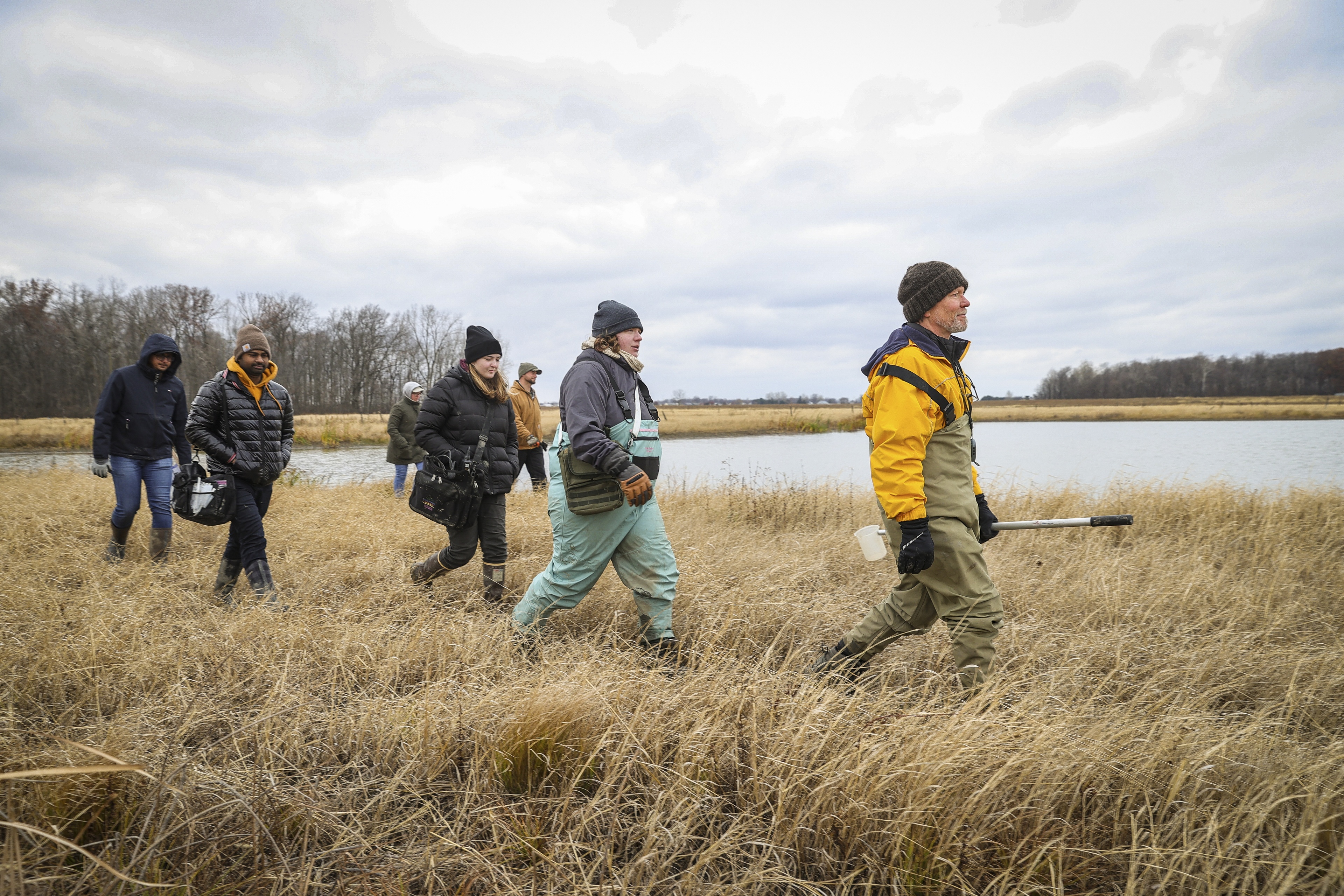Prospective Graduate Students

Passionate about research on lake and watershed water quality, conservation, or sustainability?
Consider applying for an MS or PhD working with one of the faculty members from the Center for Great Lakes and Watershed Studies!
Interested students should directly contact faculty that match their research interests after looking at their lab websites (see below). Degrees will be through each faculty members' home unit, although co-advising by multiple CGLWS faculty provides some flexibility in choice of the degree program. Stipends and tuition waivers are typically provided to strong applicants through a combination of research and teaching assistantships. Students may also apply for fellowships and grants through the CGLWS that may supplement the awards through each unit or faculty member (see below).
CGLWS faculty that are currently recruiting students:
Dr. Alexis Ostrowski: Research on watershed metal photochemistry and applications for agriculture and water quality
Dr. Kevin McCluney: Research on aquatic and linked riparian food webs, pharmaceuticals, wetland nutrient cycling, and soil health.
Dr. Kevin Neves: Research on integrated multi-trophic aquaponics systems
Dr. Angélica Vázquez-Ortega: Research on soil health, especially the role of organic carbon in nutrient cycling
Dr. Christopher Ward: Research on aquatic microbial ecology in both natural systems and algal cultivation ponds
Dr. James Metcalf: Research on aquatic ecotoxicology, especially cyanotoxins
Dr. Ganming Liu: Research on hydrology, especially groundwater and watershed modeling
Funding Incentives for Strong Prospective Students
Faculty members of CGLWS may request supplemental pay and research funds for highly qualified prospective graduate students. Students should first reach out to potential advisors who are members of CGLWS and submit graduate applications for the faculty member’s program (in Biology, M.S. or Ph.D.; in Photochemical Sciences, Ph.D.; in Geology, M.S.). Faculty may then request funds from the Center that could provide $2,500 in supplemental pay in addition to other assistantships that may be offered through the graduate program or from an advisor’s research grants. The advisor may also request ~$1,500 in supplemental research funds for use by the student. If a faculty member identifies an applicant as strong, that faculty member may ask the applicant for a CV and unofficial transcripts that can be used by the Center in evaluating funding requests.
Updated: 06/20/2024 02:59PM
